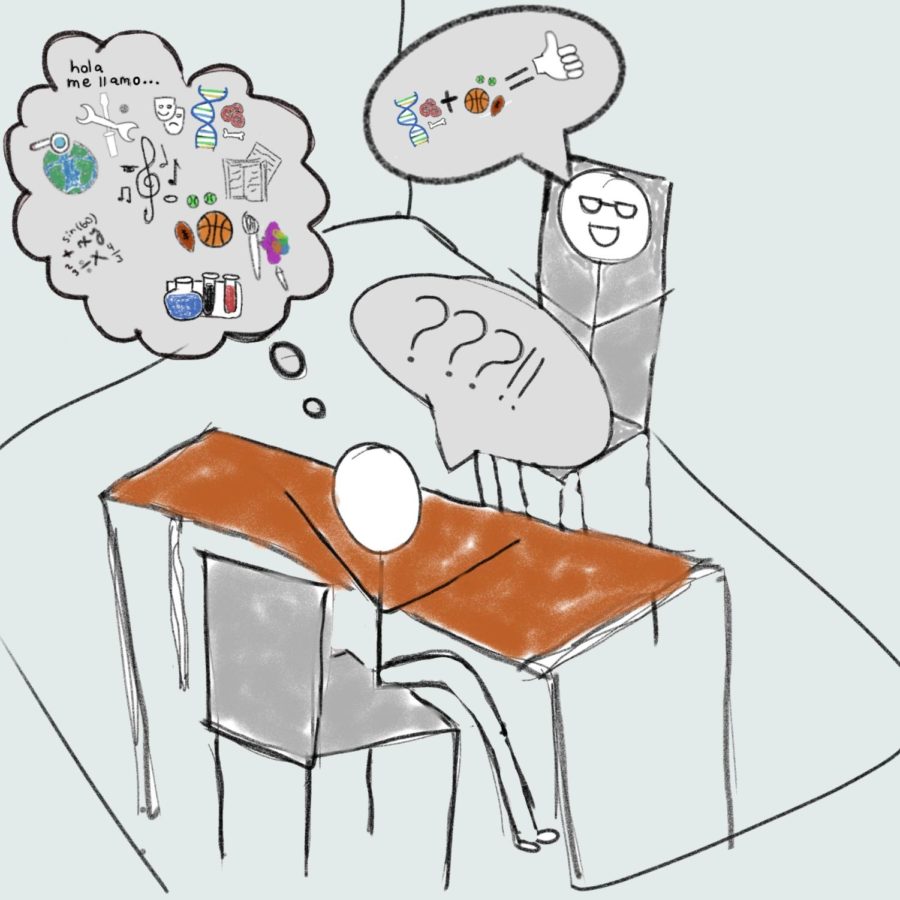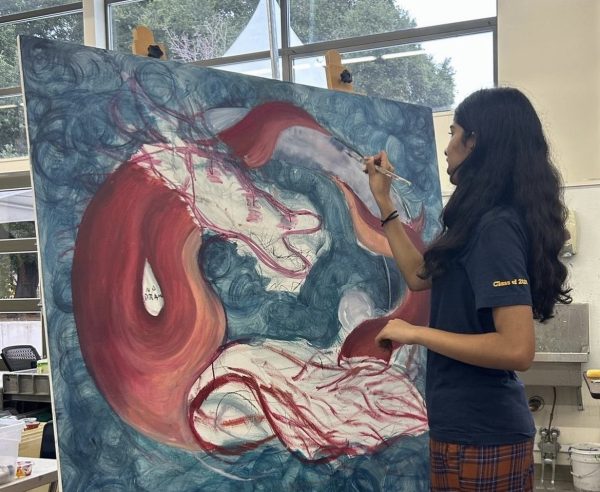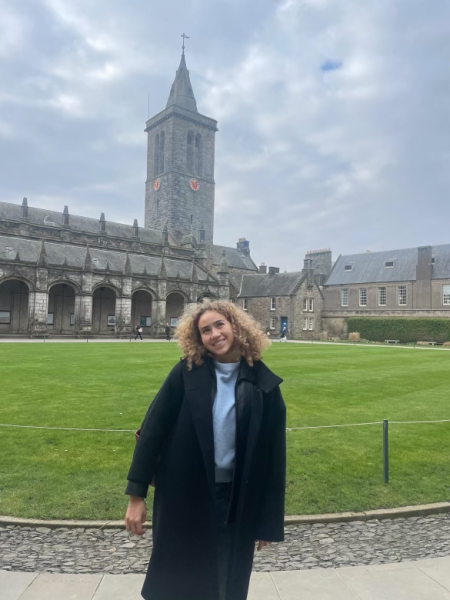Menlo Implements Academic Advisors for Freshmen
Academic advisors take an oftentimes confused and stressed out student, answer their questions, and work with them to determine a course load that will best fit them and their wants and needs. Staff illustration: Izzy Klugman
April 30, 2022
A new need has come up this 2021-2022 school year for Menlo School students surrounding course selection. So the school introduced student academic advisors to help the new class of freshmen with their course selections through all four years at the school to compensate for the growing number of options available.
Associate Director of College Counseling Natalie Ford was an academic advisor this year and will continue to be an academic advisor next year. She saw the role as someone who sees the big picture when it comes to course sign-ups for the next year. “An academic advisor is […] someone who can see things from the 10,000 foot level and then be a guide,” Ford said.
A cohort of about thirty students is assigned to one academic advisor based on their advocacy group. The students then set up a time to meet with their advisor one-on-one where they discuss possible options and fill out their course sign-up list for the following year.
Menlo has had advisors for course sign-ups in previous years. However, the class of 2025 is the first class for which each student got a specific advisor assigned to them for all four years they attend Menlo. “We haven’t had academic advisors [in this way] in the past. We signed students up for classes kind of year-by-year with a different person. There was some efficiency there, but we realize there’s some cost there too,” Upper School Director John Schafer said.
Schafer described the wants of Menlo families surrounding course selection. “Oftentimes, families want to have a three-year conversation, not just ‘what am I choosing for sophomore year,’ but like, ‘how might my choices play out over the next couple of years,’” Schafer said.
Sophomore Arthi Abhyanker described her experience signing up for courses last year without the academic advisor position as confusing. “The most confusing part of my course selections from last year [was] doubting myself with what I wanted to take,” Abhyanker said. The sophomore course load tends to reflect more specialization and rigor, which can be difficult for students to navigate on their own.
According to freshman Ruby Satusky, advisors provided students with a clearer understanding of various classes that intrigued students. “[Having an advisor] was really convenient and it worked because all I had to do was respond to an email, set a time, and show up. Then if I had any doubts, [my academic advisor, Charles] Hanson would [give] me a class overview and he’d recommend stuff. […]. The whole thing was just really well-organized,” Satusky said.
Upper School Counselor Jake Fauver added that the new academic advisors are beneficial for students’ mental health. “[Academic advising] was identified as a need because students were way more stressed about class selection,” Fauver said. “They were making choices that weren’t always in their best interest or didn’t always land with the recommendations of the teachers.”
Upper School Counselor Tracy Bianchi also attests to the positive impact of academic advisors. . “I think [advisors] create more calm and less [anxiety for students]. Now, they are going through helpful channels to better understand their future courses [and they have] a path that they want,” she said.
According to Hanson, Menlo implemented the new position due to a recent need for more support. “Over time, the number of choices available to freshmen in the spring has become much wider in many departments,” Hanson said. “On the other hand, at that time almost all advocates were teachers, so it was easy for them to give advice about the limited course choices. That’s less the case now,”
Associate Director of College Counseling Lisa Giarratano believes that academic advisors benefit the realm of college counseling as well. “I think it’ll be good to partner with the academic advisors when the students are juniors because college counseling does have a large role when students are choosing their senior year courses,” Giarranto said. It’ll be nice to chat with the academic advisors about the students’ paths, like which classes they took and why, and which areas were their strengths.”
Fauver is optimistic about the impact of the academic advisors. “I think we’re still too early, but I think it’s a positive change, even if we don’t see the impacts for another year or two,” Fauver said.












